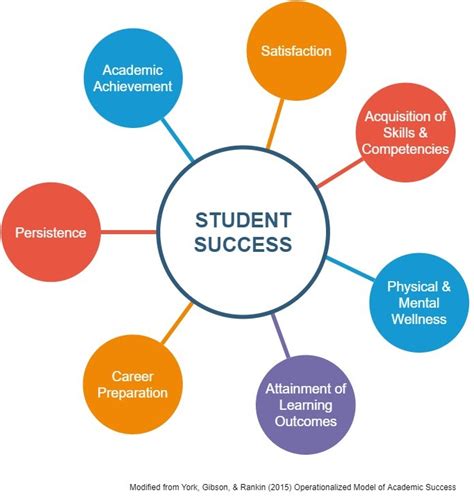Navigating the transition into high school can be both exciting and daunting for freshmen. To ensure a successful and fulfilling freshman year, students should embrace a strategic approach to academics, extracurricular activities, and social interactions.

Academic Strategies
1. Plan a Dedicated Study Space: Designate a specific area in your home as your primary study space. Ensure it’s well-lit, organized, and free from distractions.
2. Manage Time Effectively: Utilize a planner or calendar to plan out study sessions, homework assignments, and extracurricular commitments. Prioritize tasks based on importance and deadlines.
3. Seek Academic Support: Don’t hesitate to ask for help when needed. Attend extra help sessions offered by teachers or seek tutoring services. Form study groups with classmates for collaborative learning.
4. Develop Strong Reading Habits: Reading is essential for academic success. Set aside time each day for independent reading to enhance vocabulary, comprehension, and critical thinking skills.
5. Utilize Online Resources: Take advantage of online learning platforms, tutorials, and practice exercises to supplement your classroom learning.
Extracurricular Activities
1. Explore Your Interests: Identify activities that align with your passions. Whether it’s sports, music, art, or volunteering, find extracurriculars that you enjoy and that contribute to your overall well-being.
2. Set Time Boundaries: While extracurriculars offer many benefits, it’s essential to balance them with academics. Set clear time limits for activities to avoid academic overload.
3. Get Involved in Leadership Roles: Take on leadership positions within clubs or organizations to develop your communication, interpersonal, and problem-solving skills.
Social Interactions
1. Connect with Classmates: Make an effort to connect with classmates by attending school events, joining study groups, or participating in extracurricular activities. Building relationships can create a positive and supportive school environment.
2. Respect Differences: High school brings together students from diverse backgrounds and experiences. Respect everyone’s differences and strive to create an inclusive and welcoming classroom community.
3. Seek Social Support: Reach out to friends, family members, or school counselors if you experience any social challenges or difficulties. Having a support system can make a significant difference in your overall well-being.
Statistics and Research
- According to the National Education Association, students who develop strong study habits in high school are more likely to succeed in college and beyond.
- A study published in the Journal of Adolescent Research found that students who participate in extracurricular activities have higher self-esteem and academic motivation.
- A report by the Pew Research Center shows that social interactions and peer support are essential for adolescent development and overall success.
Tips and Tricks
1. Use Active Listening Techniques: When interacting with peers and teachers, practice active listening to enhance communication and understanding.
2. Break Down Large Tasks: Divide challenging assignments or projects into smaller, manageable chunks to make them less daunting.
3. Utilize the Pomodoro Technique: Study for focused intervals of 25 minutes, followed by short breaks, to improve productivity and retention.
4. Practice Self-Reflection: Regularly reflect on your study habits, social interactions, and overall experience to identify areas for improvement and growth.
5. Maintain a Balanced Lifestyle: Strive for a healthy balance between academics, extracurriculars, and social activities to prevent burnout and promote overall well-being.
Tables
| Study Habit | Benefits |
|---|---|
| Dedicated study space | Reduced distractions, improved focus |
| Time management | Reduced stress, increased efficiency |
| Seeking academic support | Improved understanding, higher grades |
| Strong reading habits | Expanded vocabulary, enhanced comprehension |
| Online resources | Supplementary learning, personalized support |
| Extracurricular Activities | Benefits |
|---|---|
| Exploring interests | Personal growth, stress relief |
| Setting time boundaries | Time management, academic success |
| Leadership roles | Confidence building, communication skills |
| Social Interactions | Benefits |
|---|---|
| Connecting with classmates | Support, positive environment |
| Respecting differences | Inclusivity, sense of belonging |
| Seeking social support | Mental health, coping with challenges |
| Tips for Success | Benefits |
|---|---|
| Active listening | Improved communication, empathy |
| Breaking down large tasks | Reduced stress, increased productivity |
| Pomodoro Technique | Improved focus, retention |
| Self-reflection | Personal growth, goal setting |
| Balanced lifestyle | Reduced burnout, overall well-being |
Conclusion
Freshman year presents a unique opportunity for students to lay a strong foundation for their high school experience and beyond. By adopting these strategies, freshmen can foster academic success, engage in meaningful extracurricular activities, and build positive social connections. Remember, the key to a fulfilling freshman year lies in a proactive and balanced approach that encompasses all aspects of high school life. Embrace these strategies, step out of your comfort zone, and make the most of your freshman adventure!
